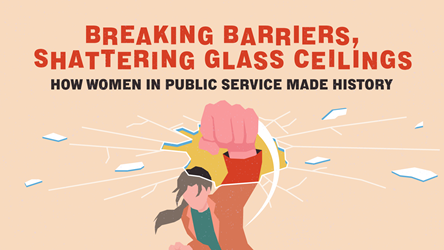Batting For Athletes: Helping Athletes Develop Post-Sporting Careers

But the national judo athlete could not help but worry too about falling behind her non-sporting peers – something she felt was affecting her training.
“I always believe that how you’re doing in life will affect how you perform on the mat for judo. If you have a lot of worries, you might not fight well because subconsciously it affects you,” she explained.
Hence her relief when she secured a job at Mitsui Sumitomo Insurance Group (MSIG), with the help of the SSI. Her new employer was comfortable with her starting work after the Games, so she could focus on full-time training during this crucial period.
Ms Ang is one of 47 athletes who have found employment under the SSI’s Sports Excellence Career (spexCareer) scheme, which matches national sportspeople with organisations that provide customised support for athletes to balance work with sports.

Such holistic growth is key to their eventual “transit back into society” after years of professional sports, said Deputy Director Peggy Tng, who heads the SSI’s Athlete Services & Development (ASD) department.
“The athletes lead ‘abnormal’ lives,” she said. “We take them out of a normal socialisation process, make them train 10 hours a day, seven days a week.” Consequently, young sportspeople often miss opportunities typically available to other youths.
Balancing career and sports
To help the athletes gain work experience, the ASD team established the Sports Excellence Business (spexBusiness) Network, a group of companies that offer athletes employment opportunities ranging from internships to part-time or full-time positions.These businesses also provide custom arrangements such as flexible working hours and telecommuting, as well as additional paid leave.
Ms Cerigwen Ng, captain of the women’s national softball team, is a sales management trainee at Borneo Motors Singapore. To help Ms Ng practise more in the months leading up to the Games, her company has given her two afternoons off work every week. She was also able to take leave for two weeks on two separate occasions for overseas training trips.
“My colleagues are very supportive,” she said. “Even if there’s still work to do, I get to leave on time so that I can go for my training sessions.”
Ms Ng also tries her best to complete her duties before leaving for training. Her diligent and responsible attitude is a testament to how companies can benefit from employing sportspeople.
As Mr Koh Ching Hong, Chief Executive Officer of Borneo Motors, put it: “We believe that sportsmen have within them the discipline, hard work, resilience and winning mentality in order to achieve results. Having Cerigwen join us is something that we welcome and sits nicely with our values and work philosophy.”
To convince companies to be partners in the spexBusiness programme, the ASD team invites employers such as Mr Koh to share at regular networking sessions their positive experience of hiring athletes.
The team also partners with other agencies such as SPRING Singapore to reach out to more employers. Within just one and a half years, the network has tripled to 21 companies spanning 16 industries.
Career counselling
Ensuring a good job placement goes beyond providing a database of supportive employers.Time and effort must be invested to guide each athlete to identify his or her career aspirations and interests, said Mr Ndi Ng, Senior Manager, ASD. Mr Ng and three other colleagues act as advisors, providing one-to-one mentoring for around 90 athletes monthly. Some individuals might also require assistance in other areas, such as résumé writing or preparing for interviews.
“Every time a job placement materialises, I feel a lot of satisfaction,” said Mr Ng, who has helmed the career support programme since its infancy in 2011. To develop a holistic athlete support system, Mr Ng and his team studied established models from countries like Australia and the UK. They also conducted a series of focus groups with companies to determine what would be feasible here.
Life after the Games
For judoka Ms Ang, who was unsure of what she wanted to pursue beyond judo, Mr Ng spent nearly five months advising her on her long-term career plan. He also facilitated discussions between MSIG and Ms Ang, to ensure that she will be able to pursue both her sporting and career goals.As a result, Ms Ang will have opportunities for stints at MSIG’s Tokyo office, which has hired Japanese judokas and even set up a dedicated Judo Training Centre. This means that she will get to work and train with colleagues who are Olympic medalists.
“These are people that I watch on YouTube,” exclaimed Ms Ang, adding that until now, she had never thought it would be possible to combine her sporting passion with a job. “I’m very grateful for what Ndi and his team has done.”
HUB OF CONNECTIONS
Besides gym and physiotherapy facilities, the SSI also runs an Athletes’ Centre for Team Singapore athletes to rest and relax in between training sessions. The centre comes with iPads, computers, a pantry and massage chairs – the crowd favourite.
The friendly ASD staff often take the chance to catch up with athletes here, or introduce players from different sports to one another. “This centre brings everyone together,” said Ms Ang. “I really feel like I’m part of the Team Singapore family.”
During the SEA Games, the centre will be converted into the “Team Singapore Premium Lounge”, an exclusive area for athletes to recover and relax after competitions. It will be stocked with additional massage equipment, healthy snacks and game consoles, said Mr Ng. This space, away from the competition fanfare, would be the “home ground” for athletes to cheer for their peers, rallying together as “One Team Singapore”, he added.
- POSTED ON
May 1, 2015
- TEXT BY
Tay Qiao Wei
- PHOTOS BY
Norman Ng









